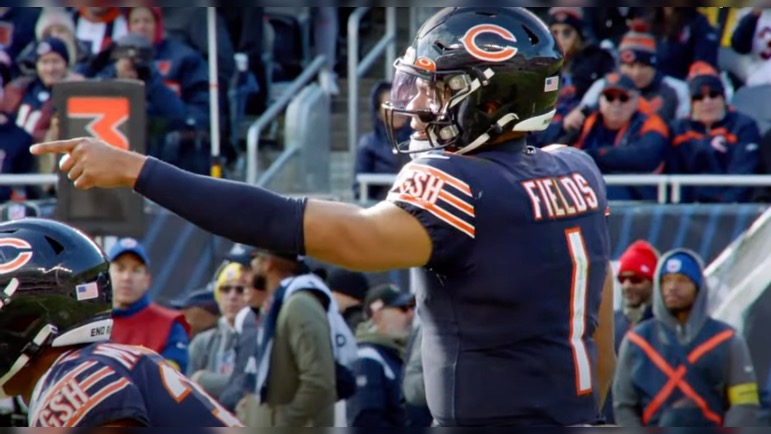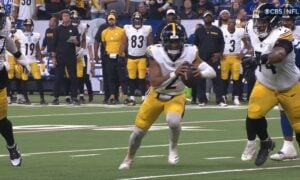Player: QB Justin Fields
Stock Value: Purchased
Reasoning: After trading Kenny Pickett, the Steelers turned around and acquired Justin Fields via trade. According to reports, the team informed him that he will serve as the No. 2 quarterback this season. Both he and Russell Wilson are only under contract through 2024, however, and they are open to all possible futures.
One of the moves that Steelers fans most clamored for at the start of the offseason was for the team to trade for QB Justin Fields. They managed to do that in the long run, and at a much cheaper cost than virtually anybody anticipated.
A former 11th-overall draft pick, Fields is entering his fourth season after starting 38 games, posting a 10-28 record for the Chicago Bears. According to reports, as his market dwindled, the remaining teams viewed him as a backup. The Philadelphia Eagles reportedly attempted to trade for Fields before pivoting to the suddenly available Kenny Pickett.
In the end, the Steelers traded as conditional 2025 sixth-round pick in order to land Fields. If he played 51 percent of the snaps, that pick rises to the fourth round. The cost is still low, however, relative to what most expected—at least a third-round pick.
Part of the issue in trading for Fields was his looming fifth-year option. You only want to invest so much if you’re not going to pick up the option, so you really have to commit to his future if you’re giving up anything substantial. The Bears telegraphed their intention to trade Fields and draft Caleb Williams, which also torpedoed his market value.
Assuming that he serves as Wilson’s backup in 2024, the Steelers may still design packages for him. Offensive coordinator Arthur Smith had success using Marcus Mariota in an option scheme in 2021, and Fields had a package for him briefly at the beginning of his rookie season before he entered the starting lineup, so there is precedent.
Either way, he has at least a year to show the Steelers his potential as a future franchise quarterback. They reportedly valued him very highly coming out of college, and now they have him on their roster. The three intervening years served to lower expectations, and the cost of acquiring him, but hope springs eternal.
As the season progresses, Steelers players’ stocks rise and fall. The nature of the evaluation differs with the time of year, with in-season considerations being more often short-term. Considerations in the offseason often have broader implications, particularly when players lose their jobs, or the team signs someone. This time of year is full of transactions, whether minor or major.
A bad game, a new contract, an injury, a promotion—any number of things affect a player’s value. Think of it as a stock on the market, based on speculation. You’ll feel better about a player after a good game, or worse after a bad one. Some stock updates are minor, while others are likely to be quite drastic, so bear in mind the degree. I’ll do my best to explain the nature of that in the reasoning section of each column.








